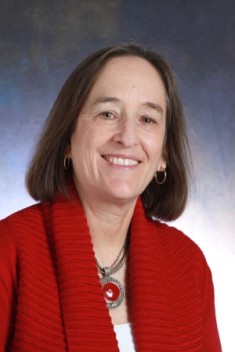 I’m eager to attend NewSchools Venture Fund’s Summit next week, and to have the opportunity to share ideas on what needs to be done to transform education in underserved communities.
I’m eager to attend NewSchools Venture Fund’s Summit next week, and to have the opportunity to share ideas on what needs to be done to transform education in underserved communities.
At New Teacher Center (NTC), we understand only too well the cycles that sustain inequity in our society. New principals and new teachers, who still have a lot to learn about how to be fully effective in the job, are all too often placed in the toughest schools in poor urban and rural areas. . That’s why NTC works to make sure new principals and teachers get the support they need to be successful in these highly-challenging environments, to make them better faster so all students have a great teacher that gives them an opportunity to learn.
But how do we make sure reform efforts aimed at ensuring all students, regardless of ZIP code, have access to a high-quality education take root and have a lasting impact?
One way is to ensure that the teachers who serve our poorest children are at the table, contributing ideas about the types of policies that will enable them to be effective. Educators across the country are working hard, every day, to put in place a wide variety of reforms. They can tell us which are working, which are not and what else needs to be done. Their advice is evidence-based; it comes from direct experience. They are the experts on what drives student learning. We need to bring their voices into the conversation.
That’s why I can’t wait to moderate the Summit session Teachers Talk…About Reform. I love hearing teachers’ ideas about how to solve some of the most pressing problems in education. This New York Times article features one such idea, from a teacher in New York’s Pelham public schools, who draws from his own classroom experience to propose improvements to his teaching fellowship program, addressing the issue of the least-experienced teachers being sent to schools that need experienced teachers the most. At the heart of his proposal is the idea of experienced veteran teachers mentoring new colleagues.
I was heartened when, in February, Kentucky Governor Steve Beshear announced the NTC administered Teaching, Empowering, Leading and Learning (TELL) survey in the state of Kentucky. “Our teachers know what is working in the classroom,” he said. “Their firsthand experiences help us differentiate between the theoretical and the practical, and they can tell us whether we are truly headed in the right direction. The TELL Kentucky survey gives our teachers a loud, undeniable voice in that process.”Over 42,000 educators responded, and the research findings have facilitated the creation of new policies that will help educators get the supportive teaching environments they need to do their best work.
I’m thrilled to see the reform dialogue and school improvement planning increasingly engaging those who are closest to the classroom, and I want to see even more of it. To start, I look forward to hearing the perspectives of five teachers next week.
Join me to hear what they have to say.

